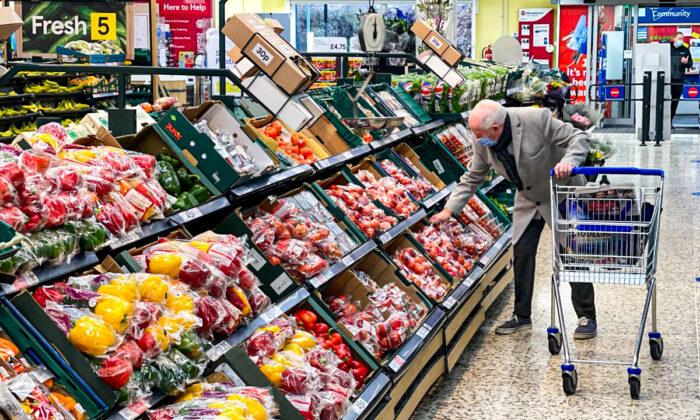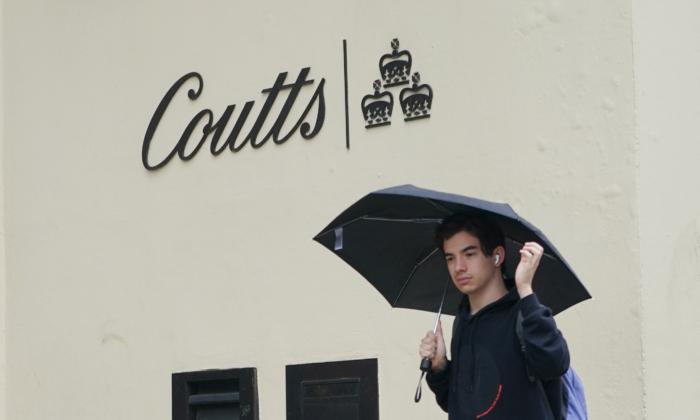The prices of the cheapest food items in British supermarkets have increased significantly, putting pressure on households already struggling with the surging cost of living.
According to the Office for National Statistics (ONS), the lowest-priced food items have increased in cost by around 17 percent over the 12 months to September 2022—an increase from 7 percent over the 12 months to April 2022.
Vegetable oil showed the largest price increase. The cheapest vegetable oil on supermarket shelves has jumped by 65 percent from a year ago.
The cheapest tea had risen in price by 46 percent, chips rose 39 percent, bread was up 38 percent, and biscuits up 34 percent.
Some items also decreased in price. Orange juice dropped 9 percent, and minced beef was down 7 percent.
Struggling with Bills
The ONS said the UK’s Consumer Prices Index (CPI) inflation reached 10.1 percent in September.Food prices jumped by 14.5 percent compared with a year earlier, representing the largest annual rise since 1980, while housing and utility costs leapt by 20.2 percent.
Some 72 percent of people with prepayment energy meters are finding it difficult to pay their bills, said the ONS.
The Financial Conduct Authority (FCA) estimated last week that 7.8 million people were struggling to keep up with their bills—an increase of around 2.5 million people since 2020, when around 5.3 million people were finding it tough.
In total, 31.9 million people, or 60 percent of UK adults, were estimated to be finding it a heavy burden or somewhat of a burden keeping up with bills—an increase of around six million people since 2020.
One in four UK adults was in financial difficulty or said they could quickly find themselves in difficulty if they suffered a financial shock, and 4.2 million people had missed bills or loan payments in at least three of the six months before the survey took place, the FCA found.
Some 12.9 million UK adults, or around one in four (24 percent), were thought to have low financial resilience.
These are people who are in financial difficulty, or who could quickly find themselves in difficulty if they suffered a financial shock.
The regulator urged people in financial difficulty to contact their provider to discuss their options, to shop around to find the best deal, and to find free expert debt advice.





